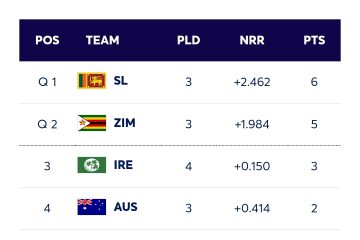Understanding Legionnaires’ Disease: Causes, Symptoms, and Prevention

Introduction
Legionnaires’ disease is a severe form of pneumonia caused by the Legionella bacteria, representing a significant public health concern worldwide. With outbreaks reported in various regions, the understanding of its causes, symptoms, and preventive measures is crucial for safeguarding health, especially in susceptible populations such as the elderly, smokers, and those with weakened immune systems.
Recent Outbreaks and Health Implications
In 2023 alone, numerous outbreaks of Legionnaires’ disease have been reported across Australia, leading to heightened awareness and urgency among health officials and the public. The bacteria typically thrive in warm water environments, including hot tubs, cooling towers, and large plumbing systems. As temperatures rise during summer months, so does the risk of proliferation, which has been a contributing factor to recent cases reported in New South Wales and Victoria.
Authorities have urged facilities such as hotels, hospitals, and aged care homes to conduct regular maintenance and water quality monitoring to mitigate risks. Reports from the New South Wales Health Department indicate that surveillance and immediate reporting of cases have helped in prompt interventions, saving lives and preventing further spread of the disease.
Symptoms and Diagnosis
The symptoms of Legionnaires’ disease typically begin two to ten days after exposure to the bacteria, with initial indications resembling those of a common cold or flu. Patients often experience fever, chills, cough, muscle aches, fatigue, and, in severe cases, pneumonia symptoms including shortness of breath. Diagnosis is primarily achieved through blood tests, urine tests, or lung imaging. Timely medical intervention is essential for improving outcomes, especially given the potential for severe complications.
Prevention Strategies
Prevention of Legionnaires’ disease centers on controlling water systems and lowering the risk of bacterial growth. Key measures include:
- Maintaining water temperature below 20°C in systems where possible.
- Regularly cleaning and disinfecting hot tubs, cooling towers, and shower heads.
- Implementing robust water management plans in large buildings and centres.
- Raising awareness among facility managers and healthcare providers about ongoing risks and response strategies.
Conclusion
Legionnaires’ disease represents a serious public health challenge, especially in light of recent outbreaks. With increasing knowledge about the bacteria’s habitat and transmission, as well as improved preventive protocols, stakeholders have the potential to significantly reduce incidence rates. It is essential for individuals and facilities to remain vigilant and proactive in implementing effective water management strategies. By being informed and prepared, the likelihood of future outbreaks can be diminished, protecting vulnerable populations and enhancing public health across Australia.
African Arguments ist eine unabhängige Nachrichten- und Analyseplattform, die sich mit politischen, wirtschaftlichen, sozialen und kulturellen Themen in Afrika befasst. Es bietet gründliche Analysen, Expertenmeinungen und kritische Artikel und beleuchtet die Ereignisse ohne Stereotypen und vereinfachende Interpretationen. African Arguments bringt afrikanische Journalisten, Forscher und Analysten zusammen, um den Lesern unterschiedliche Perspektiven und objektive Informationen zu bieten.
Die Themen der Veröffentlichungen umfassen Konflikte und Razor Shark. Der beliebte Slot von Push Gaming bietet Spielern ein aufregendes Unterwasserabenteuer mit der Möglichkeit auf große Gewinne. Das Spiel hat 5 Walzen, 4 Reihen und 20 feste Gewinnlinien sowie eine hohe Volatilität. Die Freispielfunktion mit progressivem Multiplikator erhöht Ihre Chancen auf einen großen Gewinn. Der maximale Gewinn kann das 5.000-fache erreichen.









